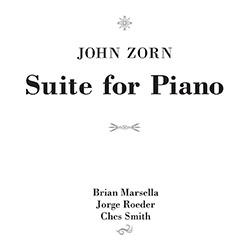
Blurring the lines between composed and improvised music, John Zorn's ten-part composition in his "Suite for Piano" was inspired in part by the Goldberg Variations and Schoenberg's solo piano music, set in the classic piano trio format and performed by extraordinary New York musicians and improvisers, Brian Marsella on piano, Jorge Roeder on bass, and Ches Smith on drums.
Out of Stock
Quantity in Basket: None
Log In to use our Wish List
Shipping Weight: 3.00 units
Sample The Album:
John Zorn-composer
Brian Marsella-piano
Jorge Roeder-bass
Ches Smith-drums
Click an artist name above to see in-stock items for that artist.
UPC: 702397838920
Label: Tzadik
Catalog ID: CD-TZA-8389
Squidco Product Code: 32161
Format: CD
Condition: New
Released: 2022
Country: USA
Packaging: Cardboard Gatefold
Recorded at EastSide Sound, in New York City, on February 17th and 18th, 2022, by Marc Urselli.
"Inspired in part by the Goldberg Variations and Schoenberg's solo piano music, Suite for Piano is Zorn's very personal take on some of the oldest traditional classical forms. It is performed here by one of the most dedicated, virtuosic, and passionate interpreters in the Zorn universe, Brian Marsella, whose educational experience (too "jazz" for the classical world and too "classical" for the jazz world) makes him the perfect interpreter of Zorn's cross-pollinating musical poetics. Accompanied by the telepathic rhythm section of Jorge Roeder and Ches Smith (Heaven and Earth Magick) this is a beautiful and soulful program of music for the classic instrumentation of piano, bass, and drums."-Tzadik
Artist Biographies
• Show Bio for John Zorn "John Zorn (born September 2, 1953) is an American composer, arranger, producer, saxophonist, and multi-instrumentalist with hundreds of album credits as performer, composer, and producer across a variety of genres including jazz, rock, hardcore, classical, surf, metal, klezmer, soundtrack, ambient, and improvised music. He incorporates diverse styles in his compositions which he identifies as avant-garde or experimental. Zorn was described by Down Beat as "one of our most important composers". Zorn established himself within the New York City downtown music movement in the mid-1970s performing with musicians across the sonic spectrum and developing experimental methods of composing new music. After releasing albums on several independent US and European labels, Zorn signed with Elektra Nonesuch and received wide acclaim with the release of The Big Gundown, an album reworking the compositions of Ennio Morricone. He attracted further attention worldwide with the release of Spillane in 1987, and Naked City in 1989. After spending almost a decade travelling between Japan and the US he made New York his permanent base and established his own record label, Tzadik, in the mid-1990s. Tzadik enabled Zorn to maintain independence from the mainstream music industry and ensured the continued availability of his growing catalog of recordings, allowing him to prolifically record and release new material, issuing several new albums each year, as well as promoting the work of many other musicians. Zorn has led the hardcore bands Naked City and Painkiller, the klezmer/free jazz-influenced quartet Masada, composed over 600 pieces as part of the Masada Songbooks that have been performed by an array of groups, composed concert music for classical ensembles and orchestras, and produced music for opera, sound installations, film and documentary. Zorn has undertaken many tours of Europe, Asia, and the Middle East, often performing at festivals with many other musicians and ensembles that perform his diverse output. Zorn's compositions cross many genres and he has stated "All the various styles are organically connected to one another. I'm an additive person-the entire storehouse of my knowledge informs everything I do. People are so obsessed with the surface that they can't see the connections, but they are there." For Zorn "Composing is more than just imagining music-it's knowing how to communicate it to musicians. And you don't give an improviser music that's completely written out, or ask a classical musician to improvise. I'm interested in speaking to musicians in their own languages, on their own terms, and in bringing out the best in what they do. To challenge them and excite them." " ^ Hide Bio for John Zorn • Show Bio for Brian Marsella "Brian Marsella is an emerging artist in the improv music community. Born in Philadelphia, Pennsylvania, Brian learned music by ear at age three from listening to his father, an amateur jazz musician, play the saxophone and vibraphone. His first music loves were Tchaikovsky, Antonio Carlos Jobim, and Scott Joplin. At five, Brian started to study classical piano and gave his first public performance. Most of Brian's childhood was filled with the struggle of learning music and the exhilaration of performance. At age eleven, Brian had has first professional "gig." Throughout his teen years, Brian performed extensively around the Philadelphia area in a myriad of settings. A friendship at that time with Philadelphia bassist, Lance Walker, whom had worked with Patti LaBelle and Harold Melvin and the Blue Notes, opened Brian to the world of R&B, blues, funk, and fusion, working with bands The Dukes of Destiny, The Elgins, and countless others. While doing club dates at night and weddings on the weekends, Brian kept up his classical career as well. At fourteen, Brian was the music director, conductor, and harpsichordist for the New Hope Performing Arts Festival's production of Mozart's opera, Bastien and Batienna, which received rave reviews. At sixteen, Brian gave his first full length concert at The James Lorah House, in Doylestown, Pa. The concert included works of D. Scarlatti, Chopin, Brahms and the world premier of Peter Cody's Sonata for Clarinet and Piano. Throughout this time, Brian was studying classical piano with master, David Ancker. Brian went on to study composition at the Westminster Choir College, and piano performance at The Juilliard School and The Peabody Conservatory, having studied with teachers such as David Dubal and Robert MacDonald. After a year hiatus from music, Brian moved to NYC and received his BFA in jazz performance from the New School Jazz and Contemporary Music Program. There he studied with Richie Beirach, George Garzone, Reggie Workman, Junior Mance, Joanne Brackeen, and LeAnn Ledgerwood. Since 2000, Brian has been a busy performing and recording artist, playing around the world with some of the world's finest musicians. Brian has been a member of Brazilian percussionist, Cyro Baptista's internationally acclaimed band, Beat the Donkey, since 2004. With Beat the Donkey, Brian has performed throughout the US and Europe, having played Central Park Summer Stage, Jazz at Lincoln Center, the Bethel Woods Jazz Festival, and the Planet Arlington World Music Festival. This past year, Cyro and Brian have collaborated in forming the band, Vira Loucos, with bassist, Shanir Blumenkrantz and drummer, Tim Keiper. The group has played Tonic, The Jazz Standard, and MOMA, to frenzied audiences. Their debut album will be out this fall. Brian is also a founding member of long-time band of friends, Caveman. Caveman has played over 300 shows in the US and Canada, including performances at the 2002 Endless Mountain Music Festival, 2003 New Orleans Jazz Festival, and Camp Bisco VI. Caveman has self-released two albums, 'Before the World' (which features a track with friend, Matisyahu) and 'totem'. Brian has also toured with Tzadik recording artist, Eyal Maoz's, 'Edom'. With Edom, Brian has performed at The New York City Winter Jazz Festival, The Montreal Jazz Festival, and the oy!hoo festival in NYC. The group will be recording a new album for Tzadik this year and will be performing in Russia this fall. Brian's other touring and recording credits include work with artists: Billy Martin, G. Calvin Weston, Marshall Allen, Odean Pope, Dave Fuszinski, Anat Cohen, Byard Lancatser, Jamaladeen Tacuma, Matisyahu, Trevor Dunn, Mary Halvorson, Briggan Kraus, Romero Lubambo, D.J. Logic, Taylor McFerrin, George Garzone, Rick Iannicone, Elliot Levin, Warren Oree, Dennis Irwin, Jason Smart, Edmar Castenada, Stephen Bernstein, Jon Madof, Erik Friedlander, Ches Smith, Baye Kouyate; and groups: Mad Cow, Big Tree, Leana Song, Pharoah's Daughter, UB313, Chris Tunkle Band, Circuit Breaker, Mother of All Bombs, Brentwood Estates, Exoskeleton, and Group Therapy." ^ Hide Bio for Brian Marsella • Show Bio for Jorge Roeder "Originally from Lima, Peru, bassist Jorge Roeder has become renowned as one of the most versatile and expressive bass players in jazz today. Combining a symphonic imagination with the intimate lyricism of a folk musician, the aggressive energy of a raw rocker with the buoyant rhythmic sensibilities of his Afro-Peruvian roots, Roeder conveys a wide spectrum of influences within a resolute foundation. In his hands, writes Peter Hum of the Ottawa Citizen, "the music feels like it's dancing from the ground up." The stunning adaptability of Roeder's voice is evidenced by the diversity of his gifted collaborators. He has enjoyed long-standing partnerships with guitarist Julian Lage, whose music encompasses a panoramic sweep of Americana styles, and Argentinian vocalist Sofia Rei, an inventive songwriter and interpreter of melodies from various South American traditions. He is also a key member of Israeli pianist Shai Maestro's trio, which blends intricate complexity and ethereal elegance, as well as trombonist Ryan Keberle's politically charged ensemble Catharsis. Roeder has also shared stages with such innovators as legendary vibraphonist Gary Burton, adventurous guitarist Nels Cline and iconoclastic composer/saxophonist John Zorn. His gifts have been recognized with a number of awards, including first prize at the 2007 International Society of Bassists Jazz Competition; semi-finalist placement in the 2009 Thelonious Monk Bass Competition; and a Grammy Award nomination for the debut album by the Julian Lage Group. Despite his seemingly natural talents, Roeder began his life in music reluctantly. He would go on to enthusiastically study classical cello in Peru and Russia, hone his electric chops in Lima rock clubs, and delve into jazz at Boston's esteemed New England Conservatory. But it all began when his mother, on a whim, bought a guitar and signed the family up for lessons. Roeder's sisters soon dropped out; as the youngest sibling, Jorge failed to realize that saying 'no' was an option and persisted. During his first guitar lesson Roeder's instructor challenged him to improvise, which the bassist recalls as a terrifying moment - but an adrenaline rush that he seeks to recreate to this day, relishing opportunities that place him in unfamiliar or unexpected situations. At the time, however, he simply froze and formed a dislike of the instrument that wasn't shaken until he began to play along with early 90s rock songs on the radio, figuring out ear-rattling hits by the likes of Pearl Jam and Soundgarden. At the same time Roeder's high school became the first in Peru to institute a music pedagogy program, which the students took to excitedly. Out of 1200 students, 900 signed up for the music program; Roeder's first choice was the upright bass, but when he skipped the tryout to play soccer he was left with the choice of saxophone or cello. Figuring that his guitar lessons would better suit him for a stringed instrument he opted for the cello. The opportunity for the school orchestra to sit in with the Lima Philharmonic for a performance of Carl Orff's epic "Carmina Burana" gave Roeder his first taste of how powerful live music could be, finally setting him on the path to becoming a professional musician. Two years after picking up the cello, Roeder was invited to pursue his classical studies at the Rimsky-Korsakov Conservatory in St. Petersburg, Russia. At the same time he had begun performing in local rock bands, tearing the frets from an old guitar to adapt it into a makeshift electric bass. During his senior year of high school he made the switch from cello to upright bass, and after his first experience sitting in with a big band formed by his peers, he knew what his future held: "I have to play upright bass," he recalls, "and I have to play jazz." Roeder moved to Boston in 2002 with a scholarship to New England Conservatory, where he would study with such jazz greats as Danilo Pérez, Jerry Bergonzi, Dominique Eade, Bob Moses, Charlie Banacos, Cecil McBee, John Lockwood, and fellow Peruvian Oscar Stagnaro. While there, he made important connections with fellow students including pianist Dan Tepfer, saxophonist Dan Blake, and drummer Richie Barshay, who was also touring with Herbie Hancock. He also began collaborations with the only other Latin American students in the jazz department: pianist Gabriel Guerrero and vocalist Sofia Rei. As a founding member, artistic director and frequent producer of Rei's group, Roeder has explored a vast swath of South American folkloric music as well as the singer's own evocative songs. In 2007 Roeder relocated to Brooklyn and soon forged two more profound collaborations. Crossing paths with the then 17-year old guitar prodigy Julian Lage while on an excursion to the West Coast, Roeder found himself with an intuitive partner with whom he could embark on a variety of divergent explorations. Their first recording together, the Julian Lage Group's 2009 debut Sounding Point, was nominated for the "Best Contemporary Jazz Album" Grammy. Since that time they've reconvened in duo and trio settings, most recently on Lage's 2019 Mack Avenue release Love Hurts with Bad Plus drummer Dave King, and in groups led by Gary Burton, John Zorn and Nels Cline. Roeder met pianist Shai Maestro while both happened to be playing in Peru, then reconnected once they'd returned to New York. Having recently concluded his acclaimed tenure with the virtuosic Avishai Cohen, Maestro was used to playing with a bassist who could respond to any challenge with wit and audacity; in Roeder he found the same qualities, and in the pianist's alternately airy and exhilarating trio alongside drummer Ofri Nehemya, Roeder can be heard playing with both staggering athleticism and deep-rooted emotion. Roeder's electric playing can be heard to soul-stirring effect in his work with trombonist Ryan Keberle's Catharsis, a band formed to respond to our tumultuous political times with inspirational vigor. He was also recently enlisted by the prolific John Zorn for a new project investigating the saxophonist's vast Masada songbook with Zorn, Lage, and drummer Kenny Wollesen. With his boundless skills and searching curiosity, Roeder's music seems to forever be reaching towards a new horizon. He's absorbed the lessons of cerebral classical training, unbridled rock passion, and spontaneous jazz invention to form a singular voice on the bass, one that has placed him in the vanguard of modern jazz." ^ Hide Bio for Jorge Roeder • Show Bio for Ches Smith "Born in San Diego, CA and raised in Sacramento, Ches Smith came up in a scene of punks and metal musicians who were listening to and experimenting with jazz and free improvisation. He studied philosophy at the University of Oregon before relocating to the San Francisco Bay area in 1995. After a few years of playing with obscure bands and intensive study with drummer / educator Peter Magadini, he enrolled in the graduate program at Mills College in Oakland at the suggestion of percussionist William Winant. There he studied percussion, improvisation, and composition with Winant, Fred Frith, Pauline Oliveros and Alvin Curran. One of Winant's first "assignments" for Ches was to sub in his touring gig at the time, Mr. Bungle (here he met bassist / composer Trevor Dunn who would later hire him for the second incarnation of his Trio-Convulsant). During his time at Mills, Ches co-founded two bands: Theory of Ruin (with Fudgetunnel / Nailbomb frontman Alex Newport), and Good for Cows (w/ Nels Cline Singers' Devin Hoff). He currently performs and records with Xiu Xiu, and Secret Chiefs 3. He has also performed with Ben Goldberg, Annie Gosfield, Wadada Leo Smith, John Tchicai, Fred Frith, and Trevor Dunn. In addition to Ceramic Dog, he also leads his two of his own projects, Congs for Brums and These Arches. He currently spends his time between Los Angeles, San Francisco and Brooklyn." ^ Hide Bio for Ches Smith
11/18/2024
Have a better biography or biography source? Please Contact Us so that we can update this biography.
11/18/2024
Have a better biography or biography source? Please Contact Us so that we can update this biography.
11/18/2024
Have a better biography or biography source? Please Contact Us so that we can update this biography.
11/18/2024
Have a better biography or biography source? Please Contact Us so that we can update this biography.
Track Listing:
1. Praeludium 5:56
2. Allemande 3:11
3. Sarabande 3:53
4. Scherzo 3:07
5. Menuet 3:46
6. Passacaglia 6:43
7. Gigue 5:32
8. Pavane 4:47
9. Intermezzo 3:58
10. Air 4:43
Tzadik
Improvised Music
Jazz
Free Improvisation
Piano Trio (Piano Bass Drums)
Chamber Jazz
Melodic and Lyrical Jazz
Trio Recordings
NY Downtown & Metropolitan Jazz/Improv
Zorn. John
New in Improvised Music
New in Compositional Music
Recent Releases and Best Sellers
Jazz & Improvisation Based on Compositions
Search for other titles on the label:
Tzadik.


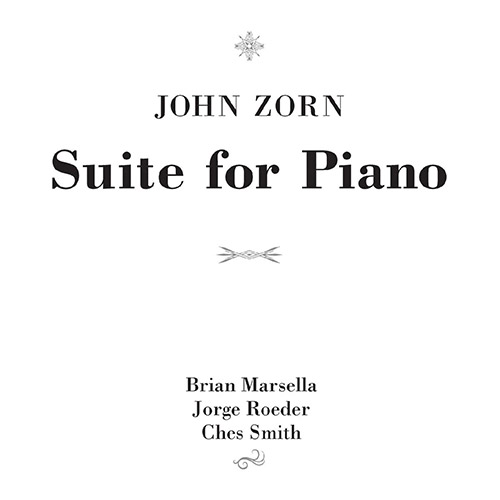

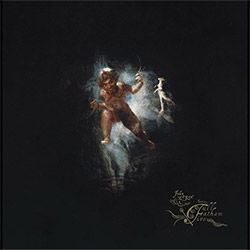
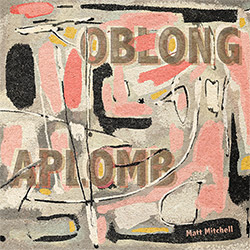

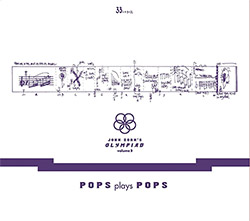
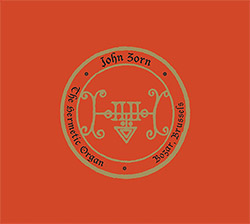

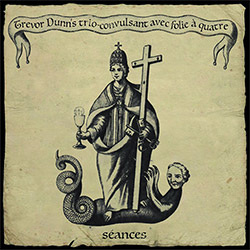
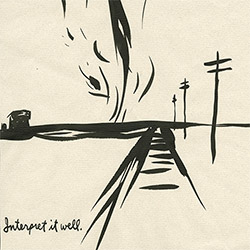


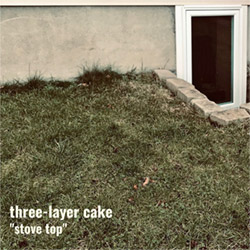
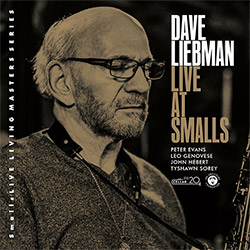


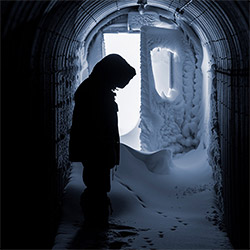
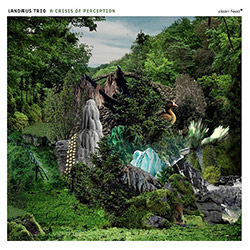


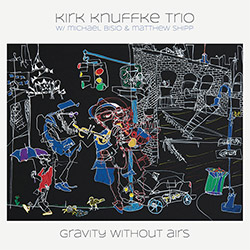
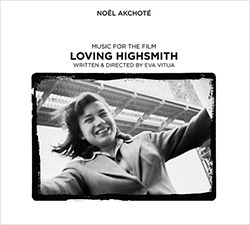
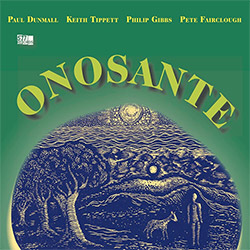
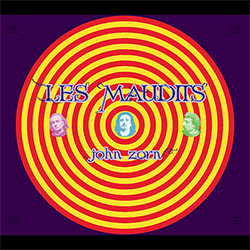














![Barker / Parker / Irabagon: Bakunawa [VINYL]](https://www.teuthida.com/productImages/misc4/35533.jpg)
![Blaser, Samuel / Marc Ducret / Peter Bruun: Dark Was The Night, Cold Was The Ground [VINYL 10-inch]](https://www.teuthida.com/productImages/misc4/35492.jpg)










![Warren, Kenny (Warren / Hoffman / Ellman): Sweet World [VINYL]](https://www.teuthida.com/productImages/misc4/35451.jpg)


![Blake, Ran / Dave Knife Fabris: Live Amsterdam 2006, First Visit [CD + POSTCARDS]](https://www.teuthida.com/productImages/misc4/35275.jpg)
![Sanna, Claudio: Compositori Sardi Contemporanei II [2 CDs]](https://www.teuthida.com/productImages/misc4/35317.jpg)












![Nevai, Nandor: <<The PRICE of FRONTIER>> Book 1: FULK [BOOK + 4 CDs]](https://www.teuthida.com/productImages/misc4/35464.jpg)
![Nevai, Nandor: <<The PRICE of FRONTIER>> Book 2: MARTIAL [BOOK + 4 CDs]](https://www.teuthida.com/productImages/misc4/35465.jpg)
![Nevai, Nandor: <<The PRICE of FRONTIER>> Book 3: JASSOM [BOOK + 4 CDs]](https://www.teuthida.com/productImages/misc4/35466.jpg)
![Nevai, Nandor: <<The PRICE of FRONTIER>> Book 4: HARD-WON [BOOK + 4 CDs]](https://www.teuthida.com/productImages/misc4/35467.jpg)






![DNS: Taking Big Bites Of The Khandas Three Cafes Deep [2 CDs]](https://www.teuthida.com/productImages/misc4/35334.jpg)




![Cleaver, Gerald: The Process [VINYL]](https://www.teuthida.com/productImages/misc4/34966.jpg)




![Alva Noto: HYbr:ID II [VINYL 2 LPs]](https://www.teuthida.com/productImages/misc4/35201.jpg)

![Baron, Derek / Luke Martin: Distinct and Concealed [CASSETTE + DOWNLOAD]](https://www.teuthida.com/productImages/misc4/35079.jpg)

![Lyle, Erica Dawn : Colonial Motels [CASSETTE + DOWNLOAD]](https://www.teuthida.com/productImages/misc4/35080.jpg)







![Alva Noto: HYbr:ID III [VINYL 2 LPs]](https://www.teuthida.com/productImages/misc4/35011.jpg)
![Kubisch, Christina / Trondheim Voices: Stromsanger 2022 For Six Voices And Electromagnetic Waves [VINYL]](https://www.teuthida.com/productImages/misc4/34628.jpg)








![Zurria, Manuel: Fame di Vento [3 CDs]](https://www.teuthida.com/productImages/misc4/35167.jpg)

![Granberg, Magnus / Nattens Inbrott / Skogen: Holde Traume, Kehret Wieder! [2 CDs]](https://www.teuthida.com/productImages/misc4/35038.jpg)
![Frey, Jurg: Outermost Melodie [2 CDs]](https://www.teuthida.com/productImages/misc4/35039.jpg)

![Pavone, Jessica: Reverse Bloom [VINYL]](https://www.teuthida.com/productImages/misc4/34895.jpg)




![Modney (Modney / Wooley / Gentile / Roberts / Pluta / Symthe / ...): Ascending Primes [2 CDs]](https://www.teuthida.com/productImages/misc4/34852.jpg)








![Elephant9 with Terje Rypdal: Catching Fire [VINYL 2 LPs]](https://www.teuthida.com/productImages/misc4/35355.jpg)
![Deerlady (Obomsawin, Mali / Magdalena Abrego): Greatest Hits [VINYL]](https://www.teuthida.com/productImages/misc4/34876.jpg)




![Haino, Keiji: Black Blues [2 CDs]](https://www.teuthida.com/productImages/misc4/35109.jpg)



![Surplus 1980: Illusion of Consistency [CD]](https://www.teuthida.com/productImages/misc4/35069.jpg)
![Staiano, Moe: Away Towards the Light [VINYL + DOWNLOAD]](https://www.teuthida.com/productImages/misc4/35037.jpg)




![Caveira (Gomes / Sousa / Abras / Ferrandini): Ficar Vivo [VINYL]](https://www.teuthida.com/productImages/misc4/34643.jpg)
![Gregg, J. J. / David Van Auken: Lunar Prairie [CD w/ DOWNLOAD]](https://www.teuthida.com/productImages/misc4/34611.jpg)

![Coultrain: Mundus [VINYL]](https://www.teuthida.com/productImages/misc4/32439.jpg)
![Mattin: Songbook #6 [VINYL]](https://www.teuthida.com/productImages/misc4/27317.jpg)
![Punkappella: Wake Up [7-inch VINYL]](https://www.teuthida.com/productImages/misc4/17519.jpg)
![Residents, The: WARNING: UNiNC.: Live And Experimental Recordings 1971-1972 [VINYL 2 LPs]](https://www.teuthida.com/productImages/misc4/31521.jpg)
![Coultrain: Phantasmagoria [VINYL]](https://www.teuthida.com/productImages/misc4/30142.jpg)
![Lennon, Sean Ono: Asterisms [VINYL]](https://www.teuthida.com/productImages/misc4/34517.jpg)

![Rotem Geffen: The Night Is The Night [VINYL]](https://www.teuthida.com/productImages/misc4/34631.jpg)
![Coley, Byron: Dating Tips for Touring Bands [VINYL]](https://www.teuthida.com/productImages/misc4/17906.jpg)

![Lost Kisses: My Life is Sad & Funny [DVD]](https://www.teuthida.com/productImages/misc4/lostKissesDVD.jpg)